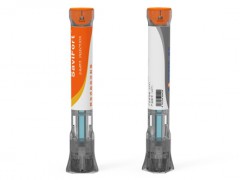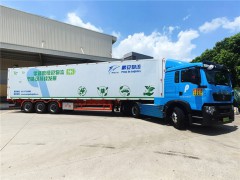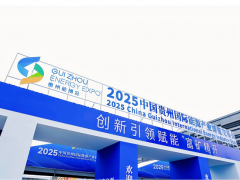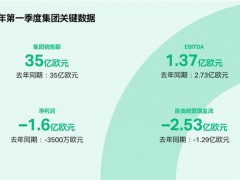據安迅斯能源3月1日消息稱,霍尼韋爾宣布,bp和霍尼韋爾已經簽署了霍尼韋爾UOP Ecofining技術的許可協議。
bp 正在為其擬議的西澳大利亞柴油和可持續航空燃料 (SAF) 項目進行預進料工程。bp計劃將其位于澳大利亞Kwinana的原煉油廠的加氫處理設備進行改造,利用可再生原料生產約 10000桶/天的柴油和 SAF,并與其現有的終端業務相結合。
對霍尼韋爾 UOP 的 Ecofining 工藝進行改造有望提供一種快速上市、資金效率高的解決方案,非常適合重新利用未充分利用的加氫處理裝置,利用可再生原料生產柴油和 SAF,其分子與石油基柴油和航空燃料基本相似,并且在混合燃料高達50%的情況下,SAF可以作為一種不需要修改發動機的替代燃料,其余的作為傳統的航空燃料。
根據原料的選擇,Ecofining生產的柴油和SAF預計將比傳統的柴油或石油航空燃料顯著減少溫室氣體排放。霍尼韋爾通過其UOP Ecofining工藝開創了 SAF 生產,該工藝自 2016 年以來一直用于商業生產SAF。
朱佳妮 摘譯自 安迅斯能源
原文如下:
bp selects Honeywell technology for its new diesel and SAF project
Honeywell announced that bp and Honeywell have signed a licensing agreement for Honeywell UOP’s Ecofining technology.
bp is undergoing pre-feed engineering for its proposed diesel and sustainable aviation fuel (SAF) project in Western Australia. bp plans to convert hydroprocessing equipment at its former refinery site in Kwinana, Australia, to produce approximately 10kbd diesel and SAF from renewable feeds, integrating with its existing terminal operations.
Revamping to Honeywell UOP’s Ecofining process is expected to provide a fast-to-market, capital efficient solution, ideal for repurposing underutilized hydroprocessing units to produce diesel and SAF from renewable feeds, which have substantially similar molecules to petroleum-based diesel and jet fuel and can be used as a drop-in replacement without engine modifications, in the case of SAF in blends of up to 50% with the remainder as conventional jet fuel.
Depending on feedstock choice, diesel and SAF produced from the Ecofining process is expected to result in a significant reduction in GHG emissions compared with conventional diesel or aviation fuel from petroleum. Honeywell helped pioneer SAF production with its UOP Ecofining process, which has been used to produce SAF commercially since 2016.
免責聲明:本網轉載自其它媒體的文章及圖片,目的在于弘揚石化精神,傳遞更多石化信息,宣傳國家石化產業政策,展示國家石化產業形象,參與國際石化產業輿論競爭,提高國際石化產業話語權,并不代表本網贊同其觀點和對其真實性負責,在此我們謹向原作者和原媒體致以崇高敬意。如果您認為本站文章及圖片侵犯了您的版權,請與我們聯系,我們將第一時間刪除。







